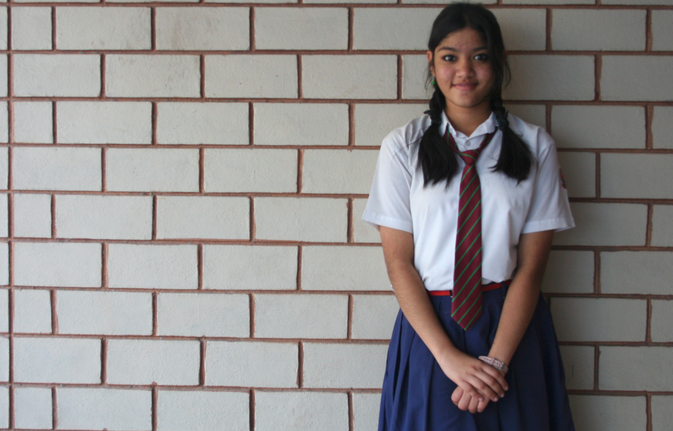India at UNESCO
On the occasion of International Women’s Day 2016, on March 8, India seeks to prioritise girls’ education, also a UNESCO niche activity, through a slew of schemes. All of these schemes seek to transition the country to a more equitable and inclusive trajectory in pursuit of the last Sustainable Development Goals (SDG4) defined by the United Nations on Education.
Girls’ education is a priority in India. The Indian delegation at UNESCO (United Nations Organization for Education, Science and Culture), in conjunction with a comprehensive policy from the Indian government on that crucial matter, intends to put it forward on the occasion of International Women’s Day 2016, on March 8.
The commitment of the Indian government is underscored through its flagship ”Beti Bachao Beti Padhao” initiative, which celebrates the girl child seeking to ensure her participation in education. Significantly, it seeks not just to create equal opportunity but to change mindsets.
Several measures have recently been announced by India to build on this initiative. They are targeted at the secondary level, identified as a weak link in the effort to educate girls. Gender sensitisation modules as an integral part of in-service training programmes for teachers; enhancing the number of female teachers in secondary schools; residential quarters for female teachers in remote areas with a view to reducing teacher absenteeism, are some of the pioneering measures being undertaken by the Government.
Furthermore, through the “Swacch Vidyalaya” initiative that has ensured separate toilets for its girl students in all state school, India has successfully targeted this frail link in an effort to turn around the situation. Over 400,000 toilets have been delivered in about 250,000 schools in the course of one year only.
Self-defence training courses
With a view to empower girls and build life skills to handle situations of threat or assault, the conduct of self-defence training courses for girls at the secondary stage is being funded nationwide. To this end, 49,647 schools have been approved for the self-defence training of girls. Conduct of adolescent education programmes including awareness camps for girls on health and sanitation issues and life skill development programmes are also being funded on the basis of proposals received from States.
Such programmes have been approved in 3729 schools till date. Significantly, in the effort to make education more inclusive, a stipend of INR 200 per month for girl students with disabilities has been provisioned for as an incentive in view of the discrimination faced by them. To this end, stipends for 107,159 girls have been sanctioned in 2015-2016.
As well, the vocationalization of secondary education is being encouraged, providing an array of courses for girls, obviating thereby any gender stereotyping. Sixteen courses inclusive of Automobiles, Retail, Security, Beauty & Wellness, Health Care, Travel & Tourism and Physical Education and Sport have been approved for schools under the Scheme. A course in Gems and Jewellery designing has also been approved for identified 3654 schools keeping in view the interest of girl students. Special guidance and counselling sessions are also available to facilitate decision making by girls.
India has also recently launched a Digital Gender Atlas for Advancing Girls’ Education. Developed with the support of UNICEF (United Nations Children’s Fund), the tool will help identify low performing geographic pockets for girls, particularly from minority and marginalised groups, to facilitate critical decision making and action in pockets where gaps are to be filled. The tool is constructed on an open source platform with an inbuilt scope of updating data by authorised persons, in order to retain its dynamic character.
India also seeks to encourage the enrolment of girl students from the economically weaker sections to prestigious engineering institutions, through virtual weekend classes at chosen centres nationwide. In the coming months the “Udaan” initiative, or the “flight” of the girl child, will seek to broaden its focus and expanse, as the country seeks increasingly to give a leg-up to stem education for girls in the effort to make education equitable and inclusive for all.
Speaking at the launch of the scheme, Indian Minister for Human Resource Development Smriti Irani observed, “We have launched the “Udaan” initiative to prepare girls coming from disadvantaged sections to excel in competitive exams to IITs and IIMs. Some of the brightest minds…can interact with (our) girls who are trying to take flight.”










